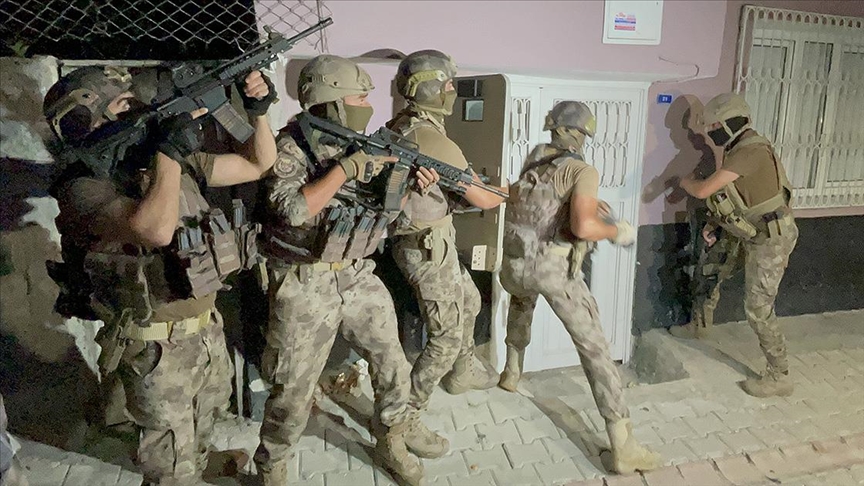Bünyamin Tekin
In what observers describe as a new low in Turkey’s decade-long crackdown on the faith-based Gülen movement, police surveillance records seen by Turkish Minute reveal that authorities are documenting visits to the graves of deceased movement members as evidence of the visitors’ “organizational affiliation” in the context of alleged terrorist activity.
The surveillance reports are part of an ongoing investigation into individuals allegedly connected to the Gülen movement, a worldwide civic initiative inspired by the late Turkish cleric Fethullah Gülen.
The Turkish government, led by President Recep Tayyip Erdoğan, has accused the Gülen movement of orchestrating a failed coup in 2016, although the movement denies any involvement. Since the coup, Erdoğan’s government has carried out a sweeping crackdown, investigating more than 700,000 people on terrorism-related allegations for links to the Gülen movement.
According to the document seen by Turkish Minute, a person identified as Cafer Başkaya was monitored during a visit to the Bağbaşı Cemetery in western Denizli province on July 28, 2022. Police observed Başkaya praying at the grave of Gültekin Payat, a teacher who died in 2017 after falling from a balcony while trying to evade police during a raid. Payat had been accused of ties to the Gülen movement and was reportedly in hiding at the time of the raid. Authorities concluded that the act of praying at the grave was “noteworthy” in the context of alleged terrorist activity, further justifying their ongoing monitoring of Başkaya.
In their pursuit of alleged members of the Gülen movement, Turkish authorities have increasingly criminalized mundane activities, including attending religious gatherings, socializing with friends and even ordering food through delivery apps. Now we know that acts of personal mourning are among the list of behaviors considered suspicious.
“Visiting a grave is a deeply personal and cultural practice,” said Ali Yıldız, a Brussels-based lawyer and a human rights advocate. “Criminalizing such an act not only erodes basic freedoms but also reflects a profound disregard for human dignity.”
Yıldız drew a parallel to the landmark ruling of the European Court of Human Rights (ECtHR) in the case of Işıkırık v. Turkey, which specifically dealt with the fact that a Turkish court equated attending Kurdish militants’ funerals with membership in a terrorist organization. “In this judgment, the ECtHR found that Turkey’s use of anti-terrorism laws to criminalize acts such as attending funerals was disproportionate and unforeseeable. The parallels here are undeniable. Criminalizing a visit to a grave as a terrorist act not only defies logic, but also undermines fundamental freedoms,” Yıldız said.
Yıldız pointed to the chilling effect of such measures: “When even mourning the dead is considered a crime, it sends a clear message that no aspect of a person’s life is free from scrutiny. This is about erasing an entire community.”
In the case of Başkaya, police documented his movements in minute detail. Surveillance reports indicate that Başkaya parked his vehicle near the cemetery at 14:30, prayed at the grave of Payat at 14:32 and left at 14:42.
Turkish prosecutors in 2022 launched an investigation into a man for attending the funerals of Payat and Bülent Boya, another person accused of ties to the Gülen movement.
Prosecutors questioned the man’s “purpose” for attending the funerals and cited the act as suspicious in the context of alleged terrorist activity.
The surveillance of cemetery visits is just one example of the broader campaign against the Gülen movement, which has affected hundreds of thousands of people. Following the 2016 coup attempt, the government declared a state of emergency and purged more than 130,000 public servants and 24,706 members of the armed forces through decree-laws that evaded judicial and parliamentary oversight.
Since 2016 more than 705,000 individuals have been investigated on terrorism-related charges. As of 2024, at least 13,251 people remain in prison on pretrial detention or convictions related to Gülen-linked cases. The government has also carried out mass arrests, including 5,543 police operations between June 2023 and June 2024 alone, which resulted in 1,595 arrests.
The international community has repeatedly raised concerns about the repression of Gülen movement members. Human rights organizations argue that Turkey’s actions amount to collective punishment and violate basic principles of justice and due process.
The crackdown’s psychological impact on families and communities has been devastating. In addition to arrests and prosecutions, individuals associated with the movement often face social ostracization, job loss and travel bans. Many have been forced to flee the country to escape persecution.

